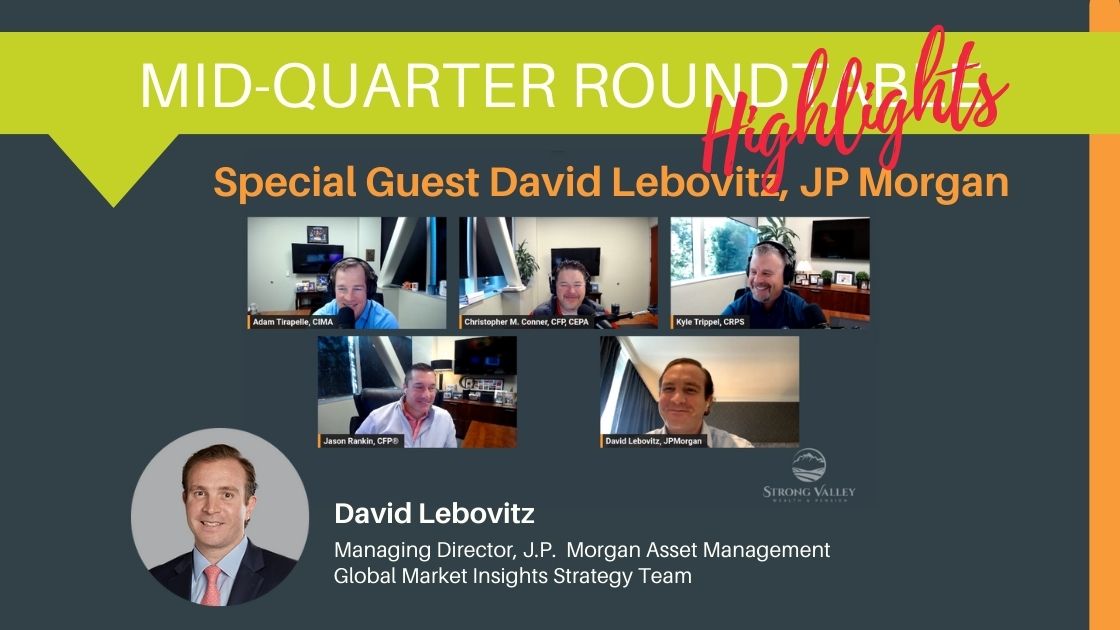You are now leaving the Strong Valley Wealth & Pension, LLC ("Strong Valley") website. By clicking on the "Schwab Alliance Access" link below you will be entering the Charles Schwab & Co., Inc. (“Schwab”) Website. Schwab is a registered broker-dealer, and is not affiliated with Strong Valley or any advisor(s) whose name(s) appears on this Website. Strong Valley is/are independently owned and operated. Schwab neither endorses nor recommends Strong Valley. Regardless of any referral or recommendation, Schwab does not endorse or recommend the investment strategy of any advisor. Schwab has agreements with Strong Valley under which Schwab provides Strong Valley with services related to your account. Schwab does not review the Strong Valley website(s), and makes no representation regarding the content of the Website(s). The information contained in the Strong Valley website should not be considered to be either a recommendation by Schwab or a solicitation of any offer to purchase or sell any securities.

With all the considerations involved with estate planning, you may feel that the documents you executed years ago are more than enough. Yet circumstances change and life moves much quicker than we all expect. It’s important to have your estate documents reviewed by an estate attorney every 10 years or so. Here are 12 points that you should cover in your review.

Many of you already have estate documents, probably executed many years ago. You need an estate attorney to look over your documents every 10 years or so. Here are a dozen points to review.
Do you have a will and powers of attorney for health care and property? These are part of every complete estate plan. With health-care power, you choose an agent to act on your behalf if you become unable to make your own decisions. With durable power for property, you select an agent to act if you are incapacitated and can’t sign a tax return, make investment decisions, make gifts or handle other financial matters.
Make sure your health-care power addresses the Health Insurance Portability and Accountability Act. This governs what medical information doctors can release to someone other than the patient.
Do you need to change any beneficiaries, executors, trustees, guardians or others named in your documents? Are all still living? Can someone you recently found fill a role better?
Any updates needed to addendums to your will that specify who gets what of your personal property? Often I read wills that mention addendums for personal property and the addendums don’t even exist.
Did you move to a different state since the execution of your estate documents? If so, seek out a local estate attorney to check any legal differences for planning between your old and new states.
Do you still need your trust documents or can you decant, which allows you to change some provisions? Consider this technique of emptying the contents of an irrevocable trust into another newly created trust if you are unhappy with your irrevocable trust. Not all states allow decanting.
You may also want to discuss possibly moving assets out of a living trust (where a trustee holds them, a technique sometimes used to avoid probate) and holding them in the name of an individual.
This discussion will weigh the income tax benefits of a step-up in cost basis, the original cost of an asset, versus other reasons to keep the trust. (“Step up” means that the cost basis of an asset resets to the fair market value of the security as the date of the holder’s death - potentially a much higher value than when they bought the security.) The higher the cost basis, the less capital gains tax your heirs pay when they sell the asset.
You may also want to see whether you need an irrevocable life insurance trust, a device once used to move assets, typically life insurance, out of a taxable estate. Now that thresholds are higher - you may not need to move assets.
Also check when your life insurance expires. Consider how long to keep it if you think you might outlive the policy.
Have your children passed the ages specified in a children’s trust (in which you designate money for such specific purposes as education, home down payments or weddings once the kids reach stipulated ages)? If your estate documents call for a trust to give children access to money at certain ages after you die, you may be able to delete that language if the kids are older than the specified ages.
What happens if one of your kids gets divorced? A trust can help you protect assets for your child or grandchild.
Do you have heirs with special needs? Don’t assume typical estate documents help such an heir. Seek out a financial advisor and attorney who specialize in this planning.
Check beneficiary designations on brokerage accounts, insurance policies and retirement accounts. Anybody you don’t want there?
If you filled out a brokerage account application (or any beneficiary designation), understand the firm’s policy when one beneficiary dies before the others. If you want the share of the assets to pass by blood line - to the deceased’s children, for example - you may need to put in language specifying per stirpes (distribution of property when a beneficiary with children dies before the maker of the will).
Otherwise, the remaining listed beneficiaries may simply divide the assets.
Often a parent names a child on a bank account so the child can access or use the money if the parent can’t act. Understand that if you name your child as a joint owner on an account, the money passes to your child no matter what your will dictates.
The child splitting the money with someone else constitutes a gift. Think carefully so you keep the family peace.
Do your heirs know where to find all your important information? Let someone know the password to the app where you keep all your passwords - you must remember digital assets now, too.



